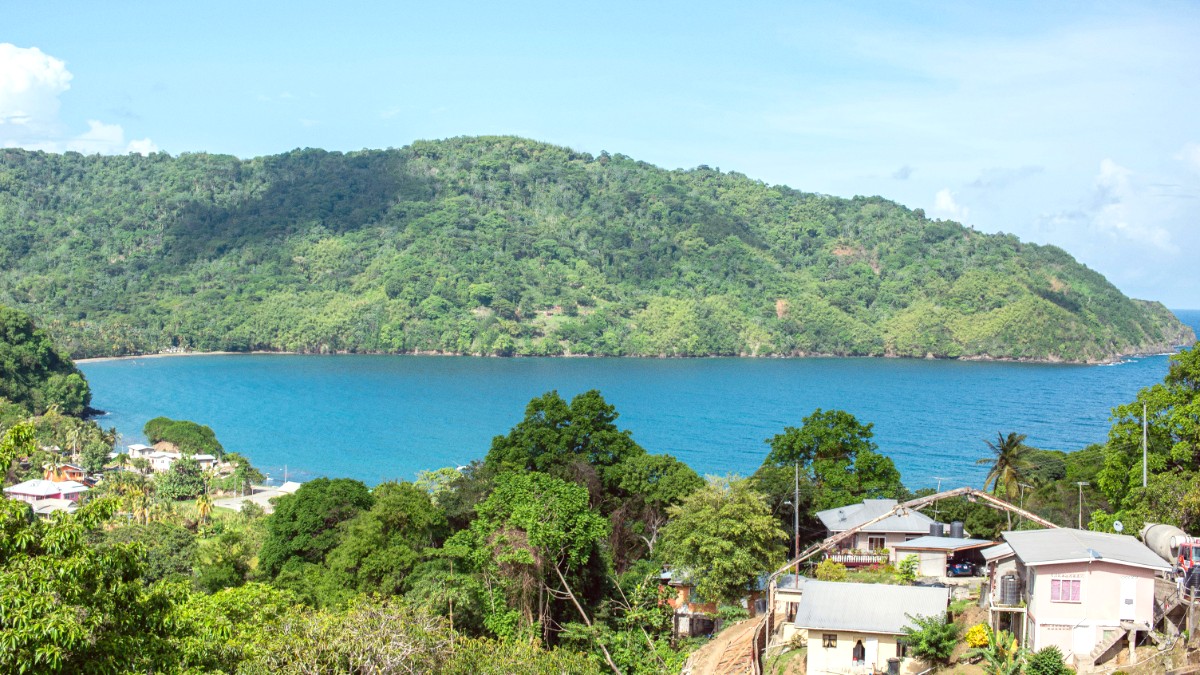
Trinidad And Tobago
Average temperatures range from 25°C to 32°C (77°F to 90°F) all year. Nighttime temperatures provide a slight cool-down.
Humidity levels are generally high throughout the year, increasing during the wet season.
Choosing your travel period can shape your experience.
Consider weather, crowds, and events when planning your trip.
January to May, Carnival
Enjoy consistent sunshine and lower humidity. The island's energy peaks, especially around Carnival. Great for outdoor activities.
Peak prices for flights and accommodation. Expect larger crowds, especially during Carnival in Port of Spain. Early booking is important.
Early June, Late Nov/Dec
Fewer crowds and potentially lower prices than high season. Weather remains pleasant before or after heaviest rains.
Weather transitions; some rain may occur, but typically brief. Hurricane risk low, but tropical storms possible.
July to November
Significant savings on flights and lodging. Lush green landscapes. Good for waterfall visits as flow is stronger. Fewer tourists.
Increased rainfall and higher humidity. Potential for tropical storms, though Trinidad is outside the main hurricane belt.
Trinidad sits south of the main hurricane belt. Direct hurricane hits are less likely compared to other Caribbean islands.
However, tropical storms and heavy rainfall occur, especially from June to November. These events may cause localized flooding or temporary disruptions.
Late February or early March. Book at least a year ahead.
Year-round, easier access in dry season.
Dry season (January-May) for most consistent sun.
Wet season for stronger waterfall flow, but trails may be muddy.
Visa requirements vary based on your nationality.
Understand visa categories and application steps.
Gather these documents for your travel.
Trinidad does not have general entry fees for tourists.
Plan your budget to suit your travel style. Trinidad has options for every budget, from cost-conscious backpackers to luxury travelers.
Prioritize your health and safety. Awareness of local conditions helps prepare you.
The local currency is the Trinidad and Tobago Dollar (TTD), abbreviated as TT$.
US Dollars are widely accepted, especially in tourist areas, but change is often in TTD.
Stays in hostel dorms or basic guesthouses. Eats street food and local eateries. Uses public buses and shared maxi-taxis for transport. Focuses on free or low-cost attractions.
Daily cost: $50 - $100 USD
Lowest prices, most local interaction.
Opts for mid-range hotels or guesthouses. Dines at casual restaurants with occasional fine dining. Uses taxis and some ride-sharing. Engages in paid tours and national park visits.
Daily cost: $100 - $250 USD
Balanced comfort and value.
Stays in high-end hotels or resorts. Enjoys fine dining and international cuisine. Utilizes private transfers or chauffeured cars. Experiences private tours and exclusive activities.
Daily cost: $250+ USD
Premium experiences and services.
| Category | Tip | Benefit |
|---|---|---|
| Transportation | Use local "maxi-taxis" and public buses. | Cheapest way to move around. |
| Food | Eat at street food stalls and small eateries called "cook shops." | Authentic and affordable meals. |
| Accommodation | Consider guesthouses or small, family-run hotels located outside the main tourist zones. | Often better value. |
Prioritize your health and safety while traveling in Trinidad. Awareness of local conditions helps prepare you.
A Yellow Fever vaccination certificate is mandatory if you arrive from a country with a risk of Yellow Fever transmission. This applies to ages 1 and over.
Routine vaccinations (MMR, Diphtheria-Tetanus-Pertussis, Varicella, Polio, annual Flu), Hepatitis A and B, Typhoid, Rabies (for high-risk exposure).
Consult your doctor or a travel clinic at least 4-6 weeks before your trip for personalized health advice.
Prevention is
Mosquito-borne illnesses like Dengue, Chikungunya, and Zika virus are present. Use Insect repellent containing DEET or picaridin. Wear long sleeves and pants, especially at dawn and dusk. Stay in accommodations with screened windows or use mosquito nets.
Traveler's diarrhea is common. Practice good food hygiene. Eat well-cooked food. Avoid uncooked fruits and vegetables unless peeled or washed thoroughly. Drink Bottled water. The tropical sun is intense. Use broad-spectrum Sunscreen with a high SPF. Wear a hat and Sunglasses. Stay hydrated.
Access to healthcare: Private hospitals often provide better facilities. Medical care outside Port of Spain can be limited. Evacuation for serious medical emergencies may be necessary.
Both public and private healthcare facilities are available. Private hospitals often provide better facilities and shorter wait times. Medical care outside of Port of Spain can be limited.
Tap water in major urban areas is generally treated. However, it may contain impurities that can cause stomach upset. It is wise to drink bottled water or use a Portable water filter.
Eat at reputable establishments. Always ensure food is cooked thoroughly and served hot. Avoid food from street vendors that looks improperly stored or prepared.
Crime, including violent crime, is a concern in Trinidad. This is especially true in certain areas of Port of Spain and other urban centers. Petty crime, like pickpocketing and bag snatching, can occur in crowded areas or tourist spots.
Trinidad is relatively safe from major hurricanes. However, it is susceptible to tropical storms and associated flooding, especially during the wet season (June-November).
Landslides can occur on hilly terrain during heavy rains. Stay informed about weather advisories.
The island experiences a low risk of seismic activity.
Comprehensive Travel insurance is highly recommended. Your policy should cover medical emergencies, evacuation, trip cancellation, and baggage loss.